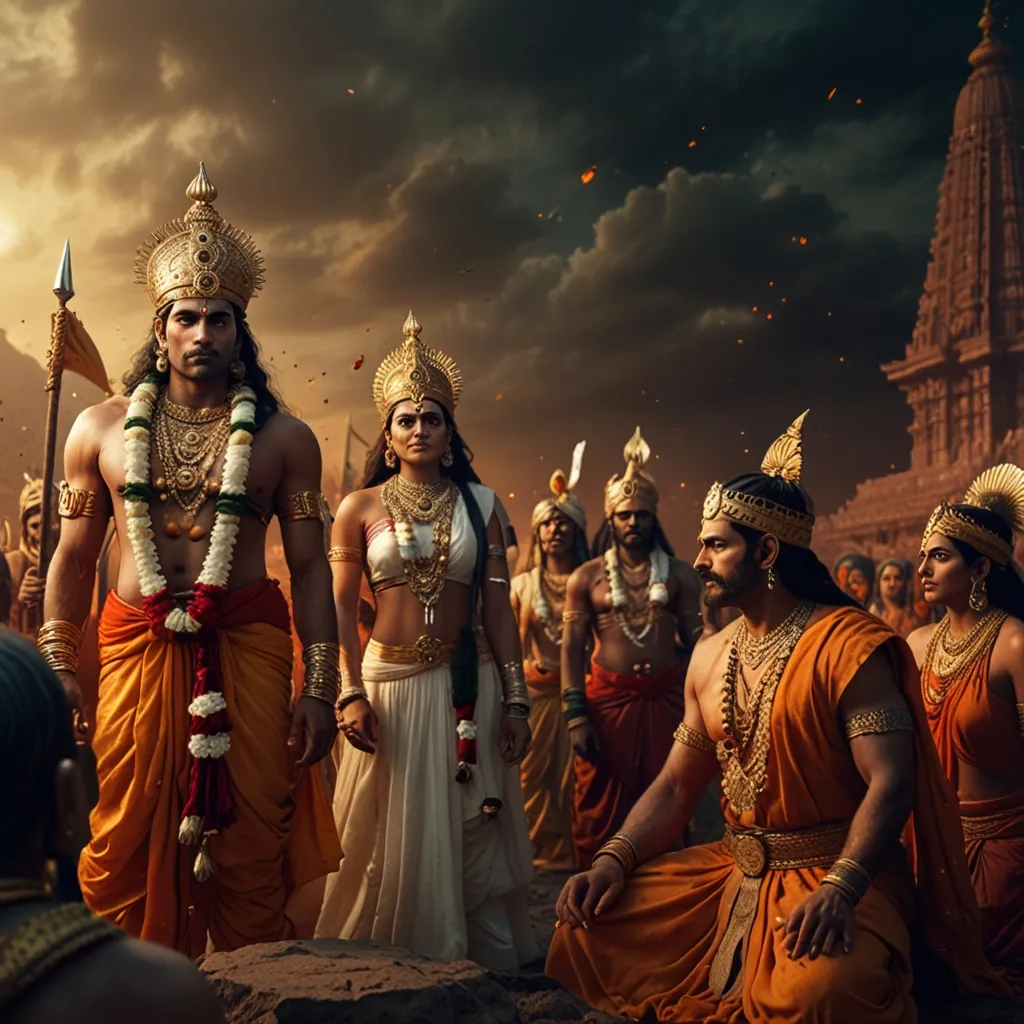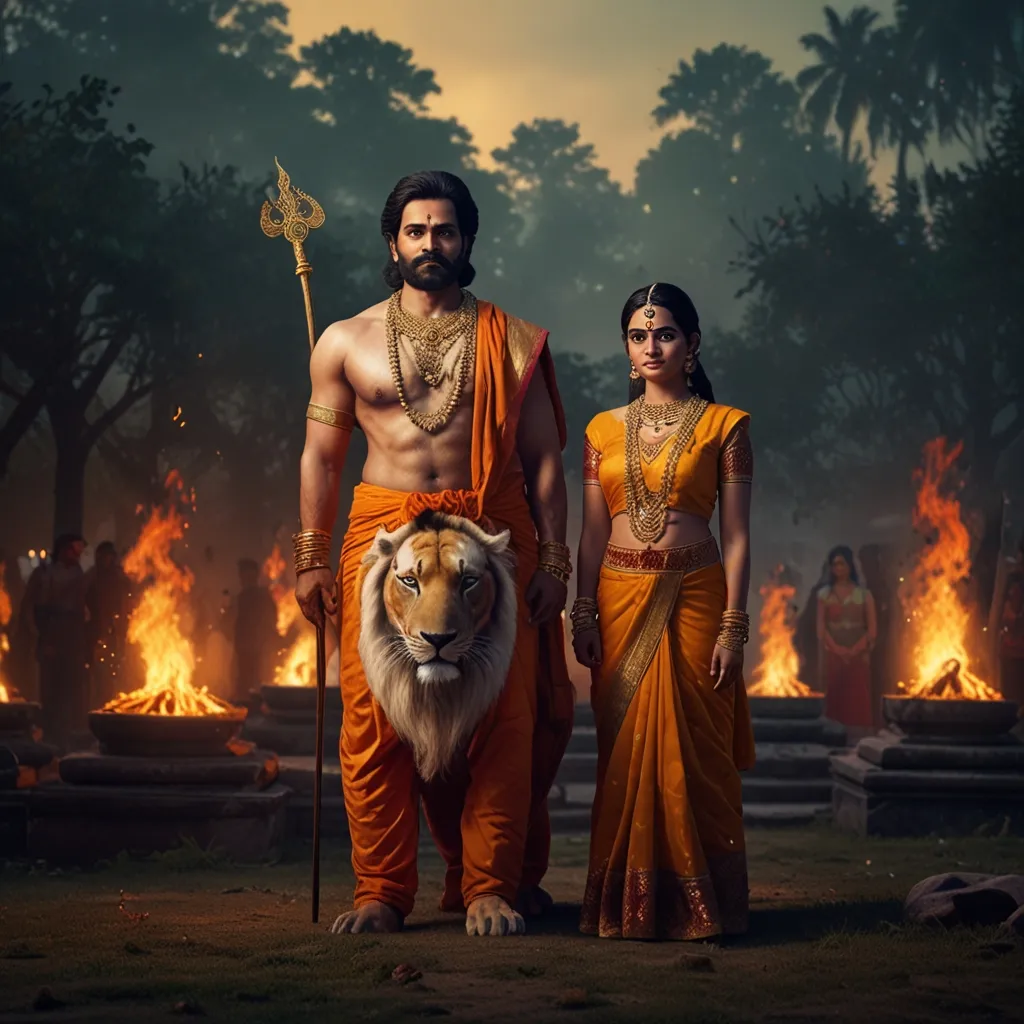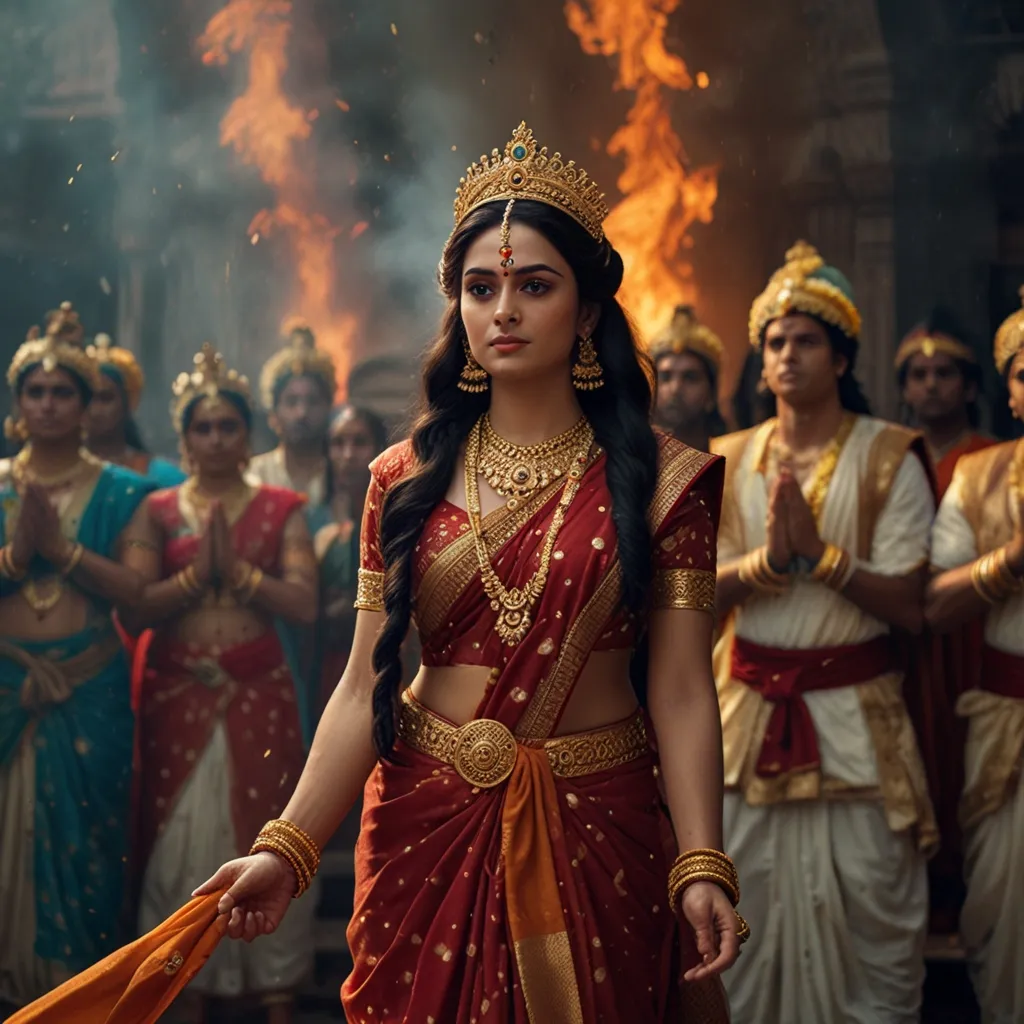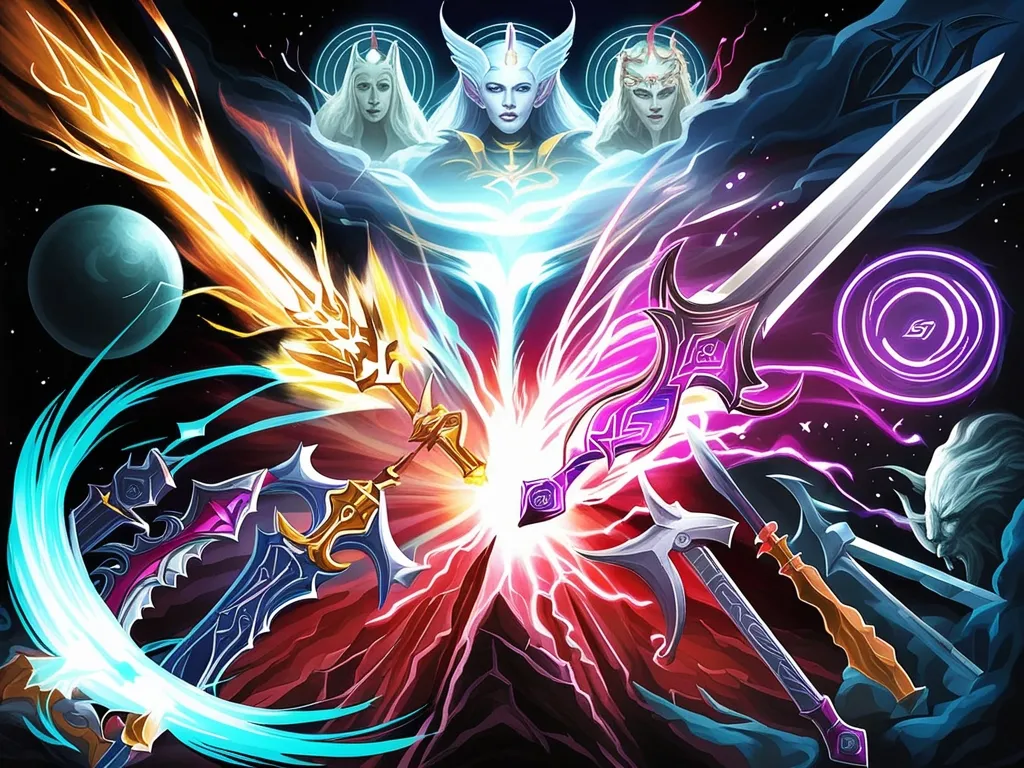In the ancient and grand kingdom of Kashi, there was a mega event unfolding – the swayamvara ceremony. For those not in the know, it’s this super cool traditional Indian shindig where a bride gets to pick her hubby from a crowd of eager suitors. Picture it like the original Bachelor, but with veils and crowns. The stars of this event were the three radiant daughters of King Kashya – Amba, Ambika, and Ambalika. These princesses were absolute gems, and a bunch of princes had gathered, all geared up to win their hearts.
But, plot twist! Just when everyone thought it was going to be a regular run-of-the-mill swayamvara, Bhishma crashed the party. This guy was no ordinary prince. Bhishma hailed from Hastinapura, super powerful and bound by a vow of celibacy, which he took to help his dad marry Satyavati. So, what’s a celibate dude doing here at a swayamvara? Well, Bhishma had his eyes set on finding brides for his half-brother, Vichitravirya, who needed to tie the knot to keep the royal lineage going.
The minute Bhishma rolled in, the mix of awe and fear was palpable. He tossed a challenge to anyone who dared to stop him from taking the princesses. Let’s just say, nobody could match Bhishma’s skills. With ease, he defeated every prince that stood in his way and whisked away Amba, Ambika, and Ambalika back to Hastinapura.
On reaching there, things took a turn. Amba confessed she had her heart set on King Salva. Standing by her feelings, Bhishma sent her off to Salva, but Salva wasn’t thrilled. He was furious that Amba had been taken by Bhishma first and refused to marry her. Heartbroken, Amba returned to Bhishma, seeking refuge and help. But Bhishma, bound by his celibacy vow, couldn’t marry her.
Feeling utterly betrayed, Amba sought revenge. She knocked on every king’s door but found none with the guts to challenge Bhishma. Pushed to the edge, she turned to the divine and prayed to the gods for vengeance. Shiva answered her call, granting her a boon to be the cause of Bhishma’s death in her next life. Amba self-immolated and, true to the boon, was reborn as Shikhandi, a warrior who would later play a pivotal role in the Kurukshetra war.
Meanwhile, back at Hastinapura, Vichitravirya got hitched to Ambika and Ambalika. It was an all-smiles affair as he was totally smitten by their beauty and grace. But life threw another curveball – Vichitravirya contracted tuberculosis and died young, leaving behind his young widows and no heirs. This was a ticking time bomb for the kingdom’s future.
Satyavati, the mother of Vichitravirya, had to think quick. She called on her first-born, Vyasa, a sage with immense wisdom, and a look that could send chills down anyone’s spine. Satyavati asked him to father children with the widowed queens through niyoga, a custom where a widow could beget children to continue the family line.
Vyasa agreed but warned them about his daunting appearance. When he approached Ambika, she was so scared she shut her eyes tight, and their son Dhritarashtra was born blind. Ambalika, on the other hand, turned pale with fear, and their son Pandu ended up with a ghostly complexion.
Despite their peculiar births, these sons played significant roles. Pandu married Kunti and Madri and had five mighty sons known as the Pandavas – Yudhishthira, Bhima, Arjuna, Nakula, and Sahadeva. These guys were front and center in the epic saga of the Mahabharata. After Pandu’s untimely death, Ambalika, Ambika, and their mother-in-law Satyavati, retreated to the forest, spending their remaining days in spiritual devotion.
Vichitravirya’s marriage and the drama that followed set the perfect stage for the Mahabharata. We met some key players like Bhishma, Satyavati, and Vyasa, and saw themes like the weight of vows, lineage, and inheritance unfold. These stories and the decisions made, no matter how well-intentioned, had rippling effects leading up to the massive Kurukshetra war.
In today’s world, the story of Ambalika and her sisters has found its way into various adaptations. Remember B.R. Chopra’s “Mahabharat” from 1988? Ambalika was portrayed by Menaka Babbar. And then the 2013 Star Plus series had Mansi Sharma stepping into Ambalika’s royal shoes. These shows added layers of details and emotion, making the stories even more gripping.
At its heart, the saga around Vichitravirya’s marriage is a deep dive into the rollercoaster of human relations. It’s a reminder that even the most heartfelt decisions can echo through time, often leading to outcomes no one saw coming. The tale continues to remind us of the complexities and fragility of life, love, and legacy.






